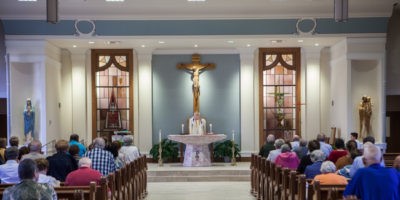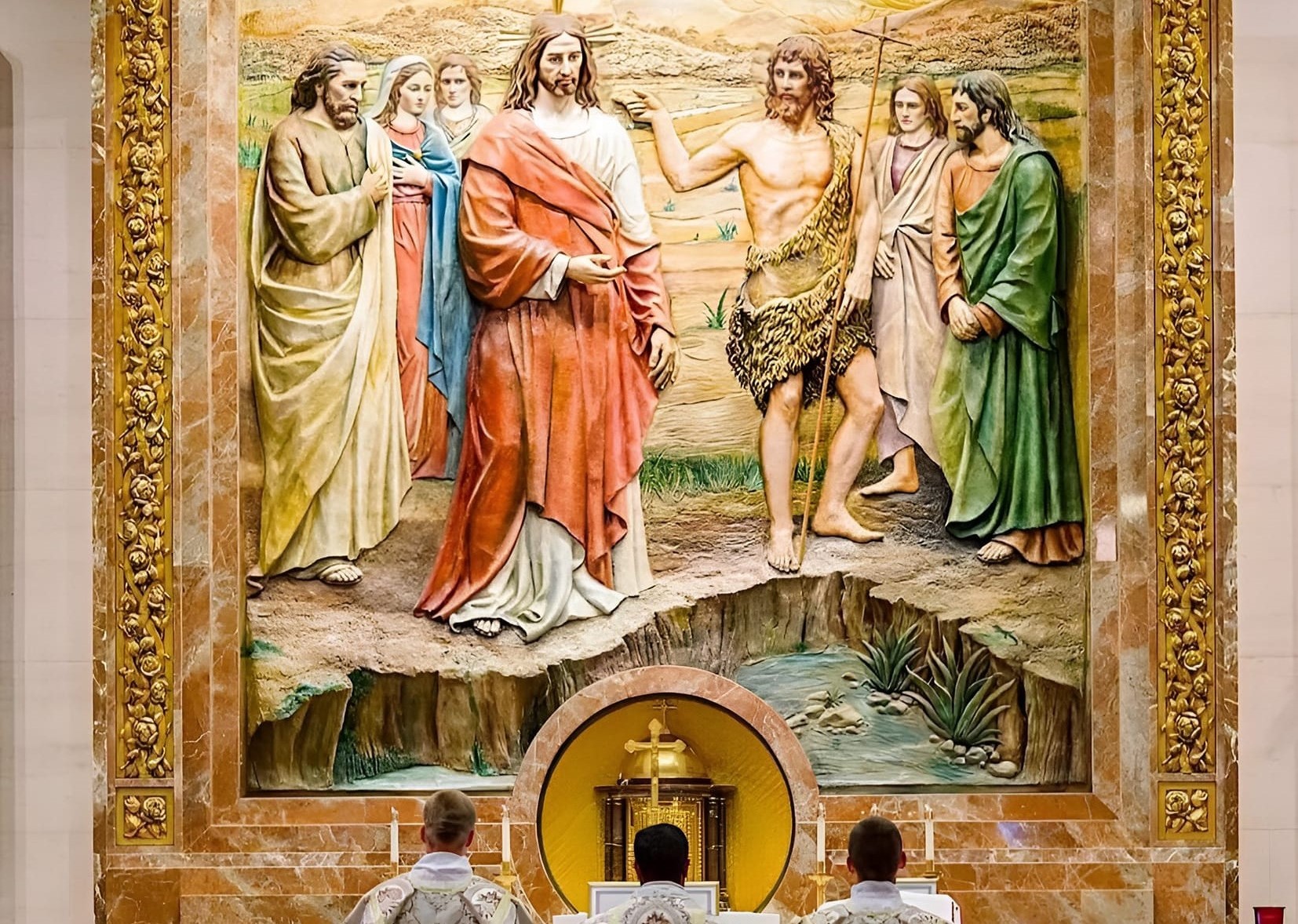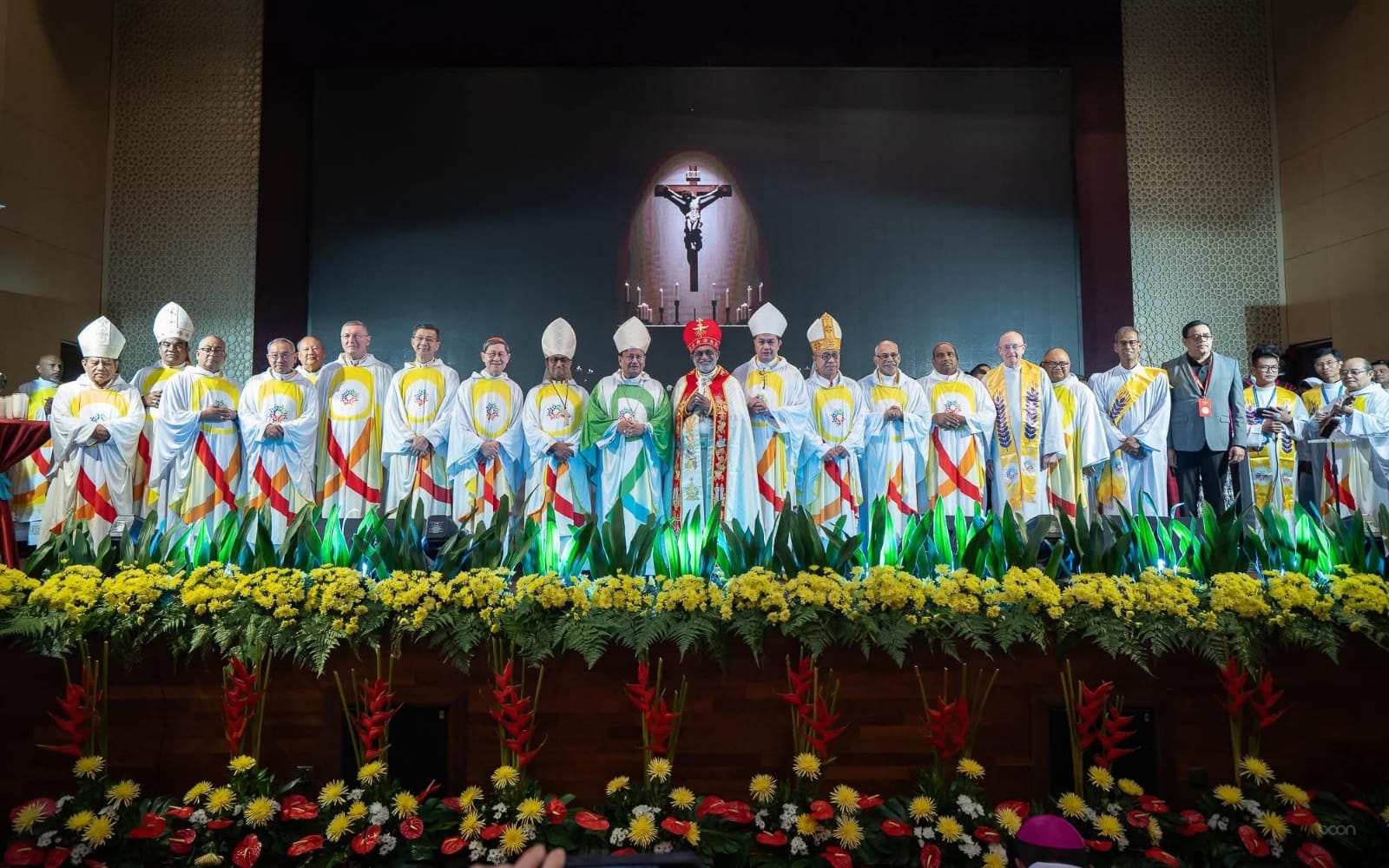– Enrico Finotti
If the three commissions adhere to this threefold way of proceeding they can only be effective in their ecclesial action and promote an authentic work of evangelization, sanctification and Christian life in charity. Unfortunately, in a widespread mentality and in a now generalized costume, this procedure is completely reversed. Instead of starting from the mystery, listening to the Word of God, knowing the rites of the Church and accepting its canonical laws, we start from man and his existential situation. Investigations, researches and surveys of all kinds are done with great care.
One listens with almost veneration and meticulous attention to every breeze blowing in the social environment to such an extent that such commitment takes almost the characteristics of the sacred, as if God could only be found in the facts and in the daily news and in the folds of the men’s fluctuating opinions . Amassed by this almost ecstatic contemplation of the contingent and totally committed to having to give you an answer shared and accepted as much as possible, the ascent to the sources of the Mystery is somewhat slowed down, delayed and sometimes abandoned. We seek answers to problems in the problems themselves and fix ourselves on them in the manner of those who do not have supernatural faith and hope, sharing problems with the world, without solutions and without goals. Thus a ‘pastoral’ excessively focused on man has trapped the Christian in the asphyxia of the material, infecting itself with the disease of secularism, now devoid of any transcendence and thus renouncing his saving mission, which it would have to deliver to the man, debased and panting , the light and the grace of the mystery that saves, raises and comforts in the oxygenating horizon of eternal realities. A similar pastoral, now secularized, is compromised by the suspicion, widespread and shared, on the very sources of the mystery, especially those offered by the Church: the Catechism, the Code, the acts of the Magisterium, the sacred Tradition, are the object of criticism, scrutiny illegitimate, marginalization. The exception is the Sacred Scripture, which, with the Protestant prejudice of sola Scriptura, still resists, but isolated from its necessary context: Tradition, Magisterium, Church, are bent and interpreted by the prevailing ideologies offered by the society that one wants and one claims to evangelize.
From this state of affairs, in which the three stages described above are radically overturned, a counterfeit of the pillars of the life of the Church springs forth:
– catechesis becomes an exchange of opinions and a permanent debate on the problems of the moment and on the phases of the development of the catechized or an exercise in how well it fits into the cultural, political and social climate in which one lives;
– the liturgy is transformed into a recital produced by the group that celebrates it, with the evidences, the sensibilities, the symbols and the language, which are typical of those who create it, manage it and eventually impose it;
– pastoral care, in all its various modalities and objectives, is fundamentally resolved in a socializing activity, of a cultural, solidarity, folkloristic, economic nature and, therefore, hardly unrelated to political positions and ideological and partial visions.
All this because we started badly, lacking the presuppositions of theological-spiritual formation and we abandon ourselves, without defenses, without project and without verification, to a humanitarian service, immediately fascinating, but soon disappointing. This is a concrete problem in which today most of our parishes and certain ecclesial groups are pouring. This pathological process affirms in the end the absence of God and proclaims that salvation depends on man himself and his abilities. It is necessary to reverse the process and to start from the Mystery, to welcome it, to know it, to contemplate it, to be impregnated with it and, only afterwards, to go towards the man with the sincere and determined will to introduce him into the event of grace, without fear of facing man, that lies in darkness and in the shadow of death. The world awaits salvation in Christ, but we cannot lose it in a good-natured contact with the world. In conclusion, we can then affirm the goodness of a liturgical group, but on the conditions set out above. Finally we must recognize that every activity in the Church has in God its beginning, its fruitfulness and its end, according to the expression of the famous prayer Actiones nostras: “Lord, prevent our actions with your grace, sustain them with your help, so that each of our prayers, like all our work, will find in you its principle and its fulfillment. Amen.” (in the Handbook of Indulgences, Libreria Editrice Vaticana 1968, page 46). For this reason every ecclesial meeting must begin and end with fervent prayer, otherwise everything is commensurate with the corporate criterion of efficiency, success and simple humanitarian relationship.
(From Il mio e il vostro sacrificio. Il liturgista risponde, 2018©Chorabooks. Translated by Aurelio Porfiri. Used with permission of the publisher. All rights reserved)


 Follow
Follow


